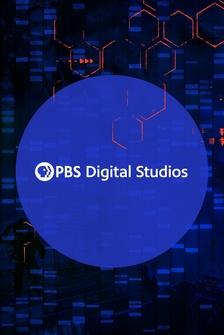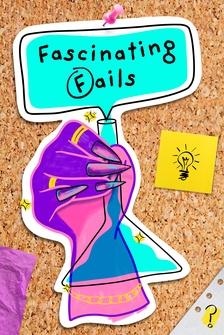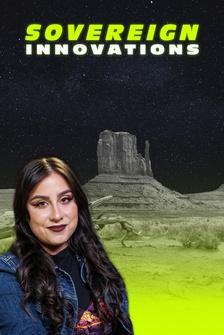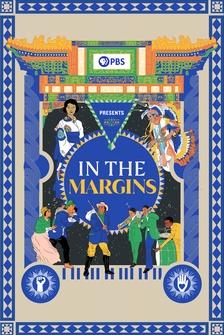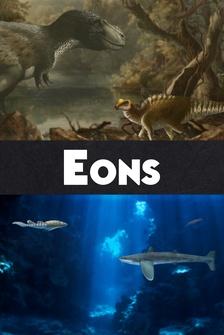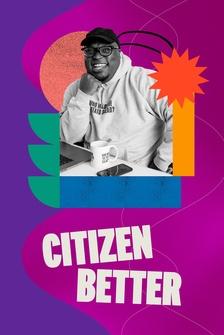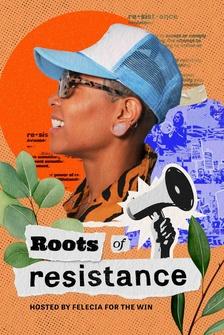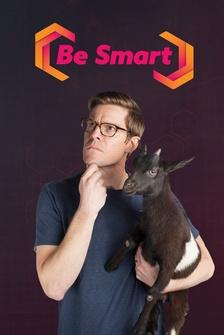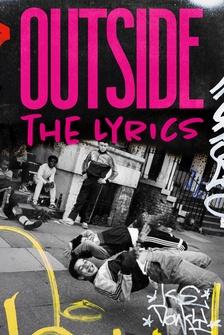Oh, um, hi.
I had a question about the Juneteenth free at last sale.
Yes.
Well, it says here on the coupon that everything is free, like free, free.
Free, free.
Okay!
With three valid forms of ID.
Three valid forms of I.D.
Okay, then.
Um, driver's license, passport, library card.
What are you doing?
Just making sure you meet the minimum height requirements.
What?
Is it, six flags?
Like what is going on?
Name?
Evelyn.
Moon sign?
That's kind of personal.
Scorpio.
Okay, well, just fill out these forms.
The coupon just said free.
Why do I gotta jump through all these hoops?
Just one.
You know what?
I'll just pay for it.
But you can't.
It's free.
But it's not.
But it is.
You just have to meet all the requirements right there in the fine print.
Doesn't seem that free to me.
Still free.
Could be free-er.
Hold up... Is this box empty?
Happy Juneteenth, y'all.
What a better way to start Say it Loud season two than on a day that commemorates the end of slavery.
Cheers.
As you may or may not already know, I am your illustrious host, Evelyn from the Internets.
And I'm joined here with our new co-host, Victor.
Hey, y'all, happy Juneteenth!
Evelyn, I see you got your customary Juneteenth punch in your hand.
Uh huh, It's a Texas thing.
Y'all I wouldn't know about that.
Oh.
Okay, Georgia.
Juneteenth did originate in Galveston, I'll give you that, but we celebrate here in Georgia, too, I've honestly been celebrating for like the last three years.
But, you know, with age comes wisdom.
And I've just been learning.
Okay, parades.
Okay, t-shirts.
Cookouts, family reunions, music festivals.
Like, everybody's celebrating.
It's going down.
Juneteenth dates back to June 19th, 1865, when General Gordon Granger arrived in Galveston and announced the end of the civil war and the end of slavery.
And we know what you're thinking.
Wasn't it the Emancipation Proclamation that freed enslaved folks or was it the 13th Amendment?
Yes.
Yes?
So what had happened was, over a year into the Civil War, President Abraham Lincoln dropped a bomb on the Confederacy, no pun intended, by releasing a preliminary Emancipation Proclamation on September 22nd, 1862, a save the date, if you will.
Right.
It basically stated that starting January 1st, 1863, all enslaved people in the states would be free.
Fine print.
Offer not valid in slave holding border states like Missouri, Kentucky, Maryland, Delaware.
You get the idea.
Fast forward to 1865.
The war is over, the Confederacy surrenders and Granger pulls up and announces the end of the war and slavery.
So, yes: although the Emancipation Proclamation came two and a half years earlier, June 19th, also known as Juneteenth, became the symbolic date representing African-American freedom.
Wait, so what about the 13th Amendment?
Yeah.
So remember those states the Emancipation Proclamation didn't cover?
The 13th Amendment came through on December 6th, 1865, to wrap up those loose ends and ratify freedom and justice for all.
Right.
Because even that didn't cover the regions that weren't states yet.
That came a year later with the reconstruction treaties of 1866, which freed the slaves in the indigenous territories.
Freeing the slaves was a huge deal that led to immense shifts in the reshaping of America.
But being newly freed with no reparations or resources-- Like 40 acres and a mule.
Left black folk to deal with the fine print of freedom or what some may call slavery by another name.
A hundred years of Jim Crow, the war on drugs, school to prison pipeline.
All of the things that make us wonder, are black people truly free?
Phew!
That is a loaded question.
I mean, we would need a whole season to examine the fine print of freedom for black Americans.
So let's just focus on a few areas where the fight for black liberation and the legacy of Juneteenth continue.
Hmm.
Where to start?
How about voter suppression?
Voter suppression is usually defined as a targeted effort to reduce a person or community's opportunity to vote in a local, state or federal election.
Sounds illegal.
Depends on who you ask.
Remember, Georgia's notorious 2018 governor election between Republican Brian Kemp and Democrat Stacey Abrams?
How could I forget?
The controversies surrounding that election definitely fueled allegations of voter suppression.
Like the massive voter purge that left over one hundred thousand voters off the rolls with little to no notice.
Or the strict voter ID requirements that strategically discouraged participation of those who can't access or afford resources to obtain required documents needed to vote.
So in order to vote, you need to bring an ID and you better be on the list.
So does that technically make polling places a club?
Yes.
A club that disproportionately affects black people and people of color.
But this isn't new.
Voter suppression has been a tool historically used to deter black Americans and other marginalized communities from voting.
See, after the Civil War, three amendments were passed and designed to ensure the equality of African-Americans the 13th, 14th and 15th Amendments all a part of the congressional reconstruction.
Now, remember, the 13th Amendment abolished slavery and indentured servitude in 1865.
The 14th Amendment gave African-Americans equal protection under the laws in 1868.
It wasn't until the 15th Amendment in 1870 that states were prohibited from disenfranchizing voters on account of race, color or previous condition of servitude.
But here's the fine print.
The 15th Amendment did not provide automatic voting rights for African-Americans.
That fight is still ongoing.
Voting rights serve as the conduit through which all other changes made possible.
You cannot tackle economic insecurity.
You cannot fight for better climate change legislation.
You cannot protect access to criminal justice reform.
The things we want to see made real become so because of voting.
Stacey lost the Georgia election in 2018.
But by bringing these issues to light, she became a champion for voting rights across the entire nation.
In 2020, activists across the U.S. were determined to ensure a free and fair election.
They launched voter registration initiatives, provided transportation to polling places and helped raise awareness about voter suppression on a national stage.
But the pandemic only added more obstacles.
Like government offices closing and mail-in ballots being contested.
But Stacey's efforts made an undeniable impact.
Her organization, Fair Fight, helped to register around one million new voters in Georgia, leading to that unprecedented moment that turned the state blue.
But it's like, did the south got something to say?
That's all I got to say.
And that was the end of voter suppression ...for like a good ten minutes.
But it ain't over.
As of June, 2021, at least 250 new laws have been proposed in 43 states to limit mail, early in-person, and Election Day voting.
Georgia is even trying to prohibit outside groups from handing out food or water to voters stuck in long lines.
And those long lines that only magically appear in neighborhoods with a majority people of color, also a form of voter suppression.
But activists, lawmakers and voting rights organizations are already challenging these provisions.
President Biden even called a recent voting bill in Georgia "Jim Crow in the Twenty First century".
Racism loves a rebrand.
Which brings us to our next topic.
Mass incarceration.
The artist formerly known as slavery.
So about the 13th Amendment.
Section one, neither slavery nor involuntary servitude, except as a punishment for crime, whereof the party shall have been duly convicted, shall exist within the United States or any place subject to their jurisdiction.
I see what they did there.
In the very same sentence that abolished slavery, lies the fine print that paved the way for the prison industrial complex, a system that generates profits through low wage and even no wage prison labor.
And who are these prisoners?
According to the Pew Research Center.
Black people make up 33 percent of the sentenced population, despite only being 12 percent of the overall adult population.
Current and former prisoners aren't allowed to vote in many other states, yet they're still counted on the U.S. Census, which means the resources and representation which would otherwise go to their actual communities goes to the cities where they're incarcerated.
Instead, essentially, black and brown people are being used as political leverage against their will for something they can't even participate in.
It's giving taxation without representation.
Which is one of the many reasons why prison abolition has risen to the forefront of political discourse.
Say more.
Prison abolition can be defined as political vision, with the goal of eliminating imprisonment, policing and surveillance and creating lasting alternatives to punishment and imprisonment.
Scholar Dorothy Roberts endorses the idea that we can imagine and build a more humane and democratic society that no longer relies on caging people to meet human needs and solve social problems.
I feel like I could guess what the next topic is going to be.
Is it...policing?
Show me policing.
What do I win?
Nothing.
Well, before we can talk about policing in America, we have to talk about the history of policing in America.
The first organized police forces were formed in the south in the 1700's.
Back then, they were called slave patrols because their job was literally to hunt down escaped enslaved people.
Northern states that no longer had slavery still found a use for police in the 1800's.
Controlling immigrants, workers and free black people.
But of course, that's all history now.
These days, according to a team of researchers from the Vera Institute of Justice, police make about ten point five million arrests every single year, aggressively pursuing drug violations and low level offenses.
In fact, 80 percent of all arrests are for low level crimes.
Crimes involving violence only account for five percent.
Only five percent of crimes involve violence?
So why do they always look like this?
I don't know.
Maybe there was a sale at Bass Pro Shop Like a $100 billion dollars worth?
Seriously, if you look at the US's annual spending when it comes to police.
Oh, so that's why they have an armored tank but the local school arts program doesn't exist.
I feel safer already.
This is why activists like Tamika D. Mallory are pushing for communities to invest in community driven solutions instead.
Mental health counseling, child care, affordable housing, education, job placement and other solutions.
Like she says, we can't arrest or incarcerate our way out of the challenges that face our communities.
Defund the police.
It's not just a Ben and Jerry's flavor.
Mallory, other activists and even other cops argue that police just aren't equipped to handle things like homelessness, mental illness, addiction, school discipline or any number of issues that need our care.
Looks like you need a refill.
Yeah.
Celebrating Juneteenth is more complicated than I thought.
True, but maybe that's part of the legacy to remind us that the road to freedom can be cruel and messy and full of fine print.
But it can also be joyful because our victories really do change the course of history for the better and inspire future generations to continue the fight.
The institution of slavery benefited the white and wealthy for a very long time.
That's not the sort of thing a country can just magically undo with a proclamation.
It takes work, radical imagination and allies who are intentional about racial justice and the legacy of Juneteenth so that this holiday can continue to be an opportunity for change and not just another day off.
Yes, let's lift every voice and sing as we celebrate our journey to freedom.
So, what does Juneteenth mean to you?
Bye.
I had a question about the Juneteenth free at last sale.
Yes.
Sorry, I don't know what comes next.
Let's redo that, let's redo that.
Let's redo that.
Oh, sorry.
Were you going or were you practicing?
This project is supported in part by the National Endowment for the Arts on the Web at arts.gov




